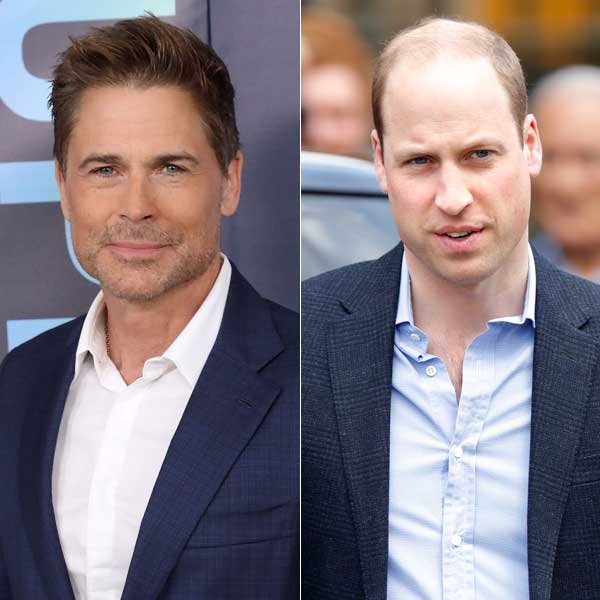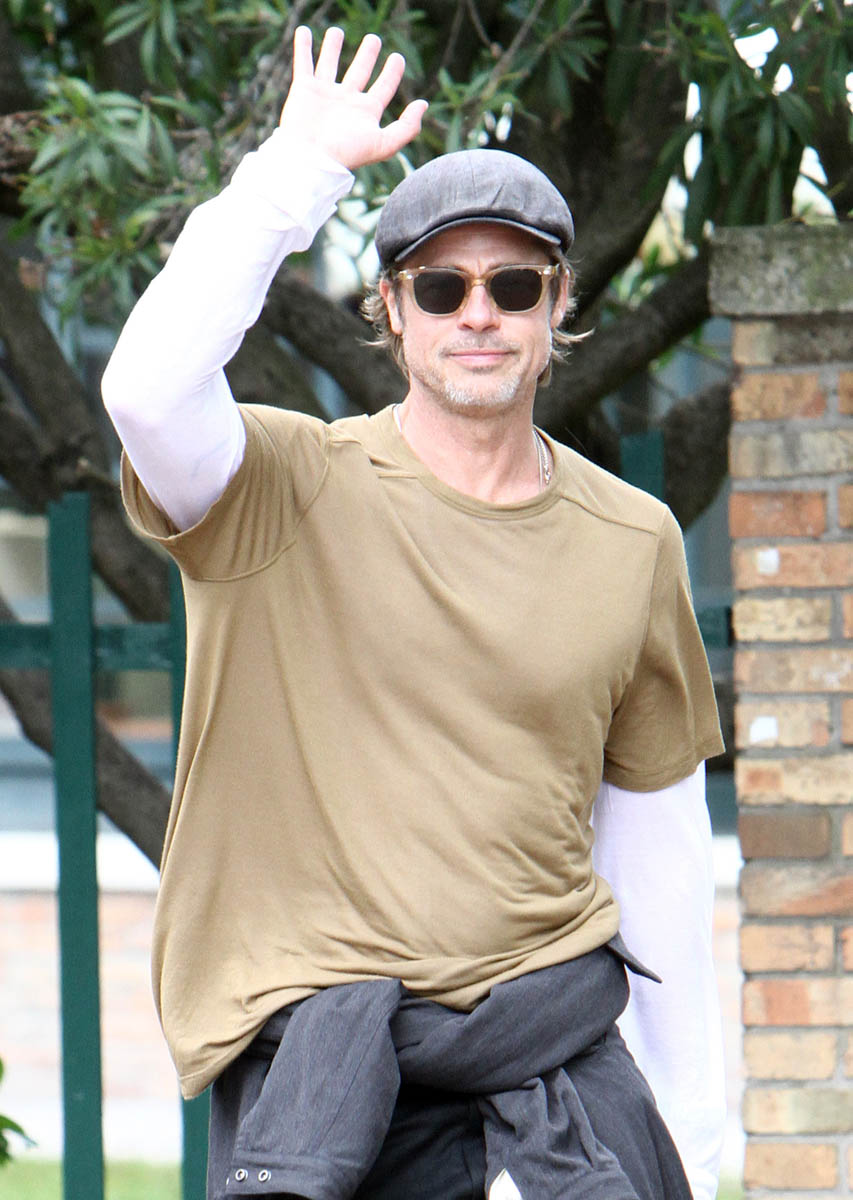Prince William is hair-shamed



Rob Lowe is giving interviews to UK outlets to promote his ITV show Wild Bill. During an interview with The Telegraph he was asked, now that he’s spent some time in England, whether or not he’s more vain than British men. His response: “That’s a low bar”. Rob’s lived in Hollywood for decades. The vanity in Hollywood is Olympian. But then he took it from there to Prince William. Per E!:
“Can we talk about William? I mean the future king of your country let himself lose his own hair, so when I say British men set a very low bar..." he said with a pause. "Honestly, one of the great traumatic experiences of my life was watching Prince William lose his hair."
And, as the 55-year-old pointed out, there are ways to keep a luscious head of locks today. "There's a pill!" Lowe, who sports a full head of hair, joked. "The first glimmer that a single hair of mine was going to fall out, I was having stuff mainlined into my f---ing veins. And that's what I did for the next thirty years."
Is that mean? Yes. Of course it’s mean to make fun of someone losing their hair. Does it exacerbate male hair judgment, to call it a “traumatic” experience seeing the future king of England lose his hair? Yes, that too. Especially in an interview that’s to be published and shared. Look what’s happened. We’re all talking about William’s hair loss.
That said, because it’s not like I can let myself off the hook, have I had private conversations offline about William’s hair? Yes, I have. Have you? At least some of you have, because I’ve received your emails. We have been conditioned to associate men’s hair – and the presence of it – with attractiveness. If there is a male insecurity equivalent to female “weight gain” or “aging”, it’s hair loss. The difference is that I’m not sure there is as steep of a social value decrease in hair loss for men as there is for women where their bodies and their age are concerned. Men are still offered jobs on television, as actors, commentators, news anchors, when they’re bald. They can still become CEOs when they’re bald. The richest man in the world is bald. Meanwhile there has been a long history of women losing opportunities over body type and age.
So while Rob Lowe said a dicky thing about Prince William – and I want to be clear, so that you’re not shouting at me in two minutes, WHAT ROB LOWE SAID WAS DICKY AND UNKIND AND HE SHOULD NOT HAVE BROUGHT WILLIAM INTO THE CONVERSATION AND THERE IS NO DEFENDING IT – Prince William will be OK. Those two things can be true at the same time. Rob Lowe said some sh-t and it was mean. Prince William will be OK. Fact and fact.
Can we talk about the second part of Rob’s statement? The part where he’s like, the minute I lost my first hair I was doing whatever the f-ck I could to stop it? Because, originally, the question was about vanity. He sidetracked it by trolling Prince William, but the goal of the discussion, initially, was vanity and specifically male vanity.
I’m interested in male vanity. Vanity, as a word, has no gender. Its application, however, is gendered. It more often than not applies to women – even though, demonstrably, men are vain too. Men are just as vain, just as men also gossip. Since vanity has been feminised, though, when men, straight men in particular, are vain it is considered “unmasculine”. And not just by men. Women uphold these beliefs too. We want men to take care of their appearances. But we don’t want them to be too vain about it. Or we don’t want to see them actively being vain. We’re good when they can walk around with their shirts off, all tight and toned and fit. We don’t want to know that they look in the mirror, inspecting their bodies, their abs, their pecs, the same way women do. Brad Pitt’s body in Fight Club? Lust. How good he looked in Cannes last week? Awesome. The level of obsession it takes to get there though? Watching a makeup artist put foundation on him? Watching him meticulously trim his beard? Pluck his eyebrows? Go to the dermatologist for his facials and injections (if applicable)? You don’t want to know.
I’ll cop to that. But it’s unfair, I think. Considering where we are now in moving the conversation away from the rigid standards of what’s “masculine” and “feminine”, judging men on their vanity, for basically doing the same as women, is probably unfair.
Could Prince William have done anything about his hair loss even if he wanted to? Before you answer that, obviously, yes, the ideal solution here is to encourage more general acceptance of hair loss to begin with, to start to attack the notion that men’s hair loss is unattractive. Being that we’re not there yet though, and William lives in a time where that ideal has yet to be achieved, and we’re dealing in the here and now – what would have happened if he had taken measures to grow back his hair or whatever it is that Rob Lowe and SO MANY OTHER MEN IN HOLLYWOOD have been doing but not talking that openly about?
He would have been criticised for it. The future king can’t just behave like a celebrity, all vain and sh-t, caring about his looks, caring about his appearance. They’d call it unseemly. Maybe we’d call it unseemly. Beneath him. Too vain. Too “unmanly”. And the thing is… I’m not sure who that helps.

